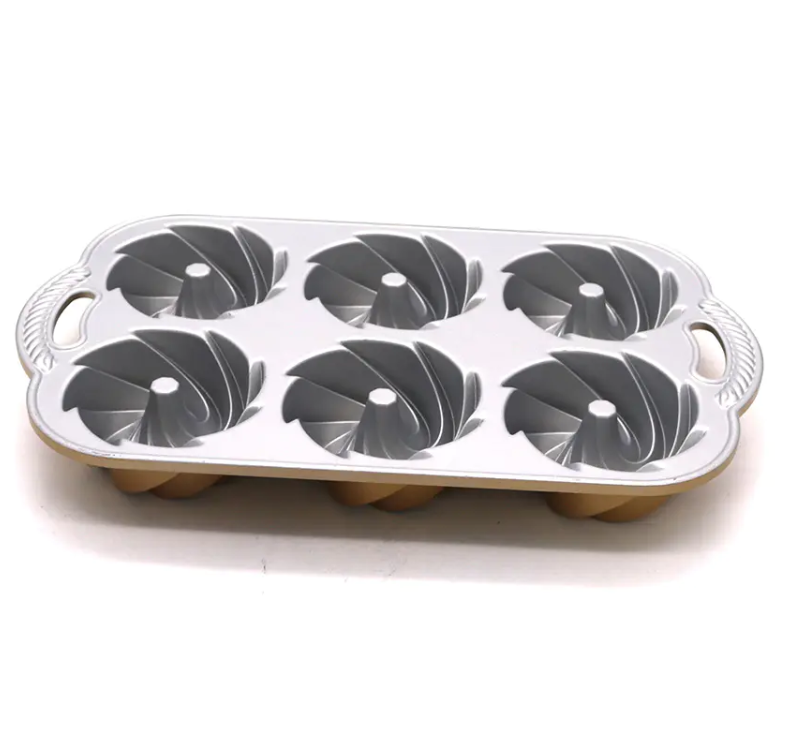Aluminum cake moulds hold an important place in the baking industry due to their favorable characteristics and broad usability. From a manufacturer’s standpoint, producing aluminum cake moulds involves focusing on factors that enhance durability, heat conduction, and user convenience. These aspects contribute to the widespread acceptance of aluminum moulds in both commercial and home baking environments.
One of the main advantages that manufacturers consider is aluminum’s natural ability to conduct heat efficiently. This quality allows cake moulds to distribute heat evenly throughout the baking process, reducing the likelihood of uneven baking or hot spots. Even heat distribution helps bakers achieve consistent texture and color across the entire cake, which is valuable for both individual bakers and large-scale production.
Material selection is critical in manufacturing aluminum cake moulds. Aluminum provides a lightweight option compared to other metals, which makes the moulds easier to handle during use. This lightness does not compromise strength; aluminum offers a balance of resilience and flexibility that withstands regular use without warping or deforming. Additionally, aluminum is resistant to rust, which contributes to the moulds’ longevity and reduces maintenance efforts.
From the production perspective, manufacturers apply precise forming techniques to shape aluminum sheets into various cake mould designs. These techniques ensure the moulds meet specific dimensional requirements and design standards, allowing bakers to produce cakes in consistent shapes and sizes. Smooth finishing processes are also applied to the inner surfaces to prevent sticking and to facilitate easy cake release, which enhances the baking experience.
Customization is another important aspect considered by manufacturers. Aluminum cake moulds can be produced in different shapes such as round, square, rectangular, or specialty designs to meet diverse baking needs. Manufacturers often work with customers to develop moulds that fit particular requirements, whether for home baking sets or professional baking equipment.
Moreover, aluminum cake moulds are generally compatible with multiple types of ovens, including conventional, convection, and gas ovens. This versatility ensures that the moulds can be used in various baking setups, catering to a wide range of customers.
In addition to functionality, manufacturers pay attention to the ease of cleaning. Aluminum moulds typically require minimal maintenance, and their smooth surfaces allow for quick washing and drying. This aspect is especially valued in busy commercial kitchens where efficiency is important.
In summary, manufacturing aluminum cake moulds involves balancing heat conduction, material durability, ease of use, and design flexibility. These factors contribute to producing moulds that serve the needs of bakers with diverse baking preferences. By focusing on these elements, manufacturers provide tools that support consistent and enjoyable baking outcomes for users worldwide.

